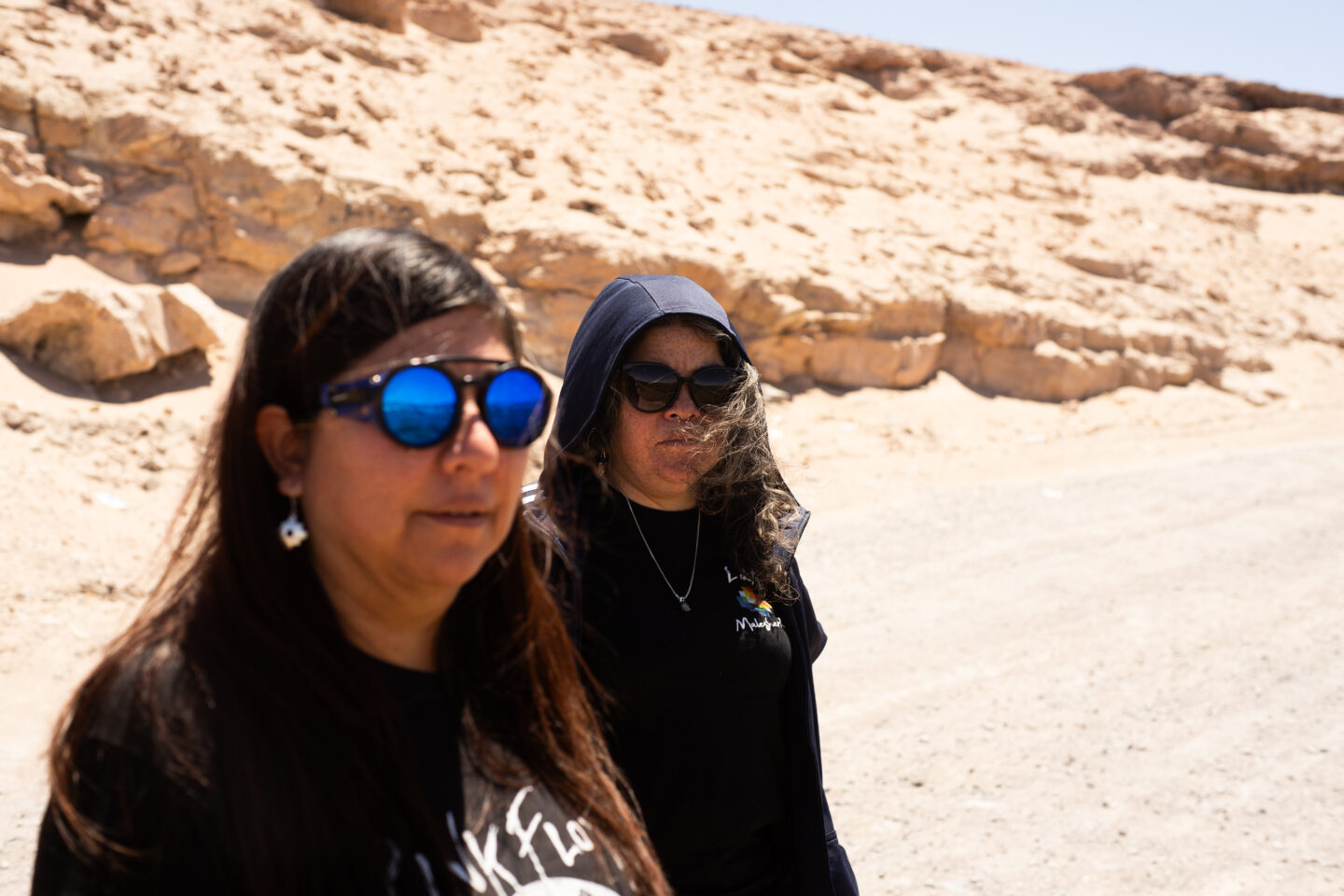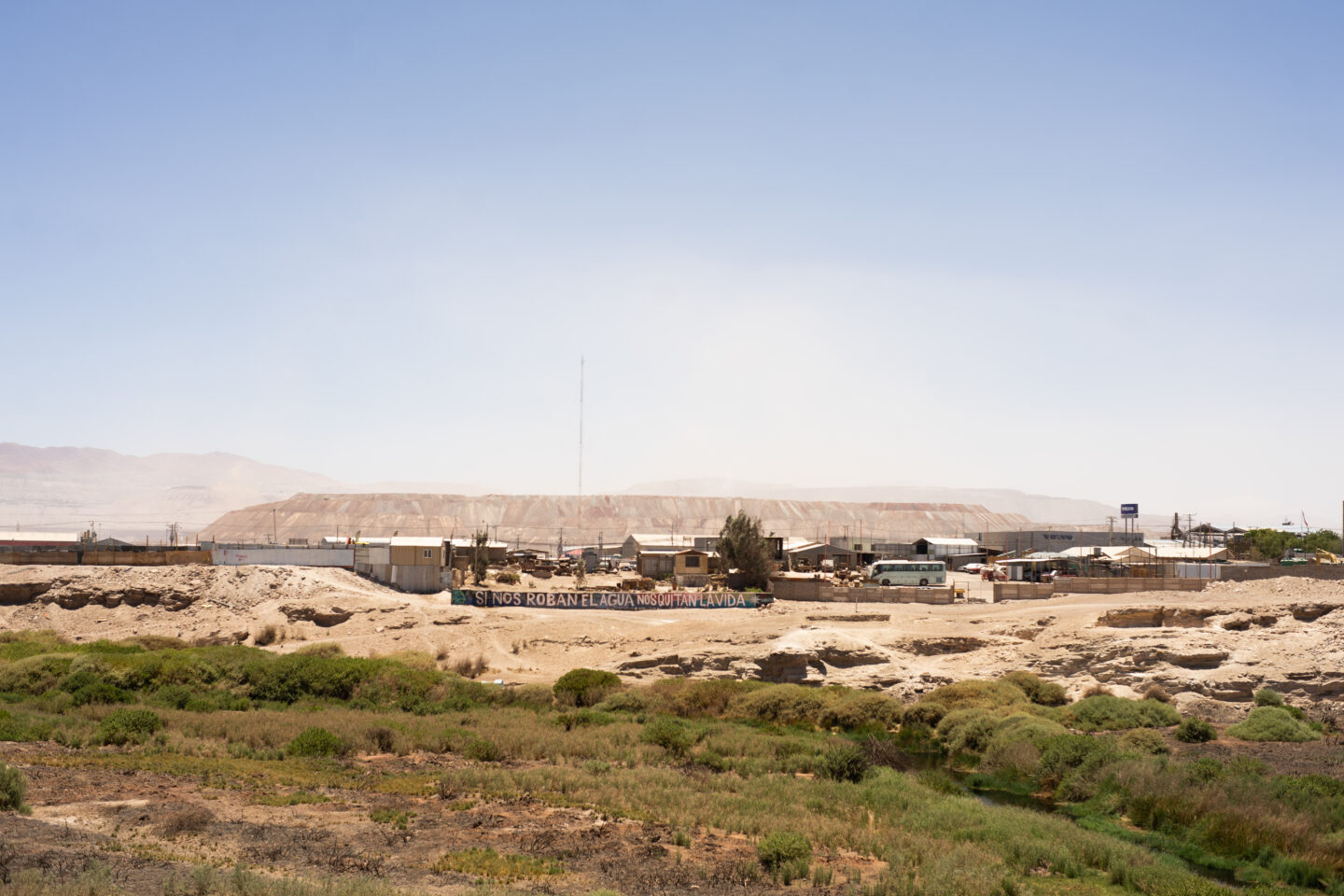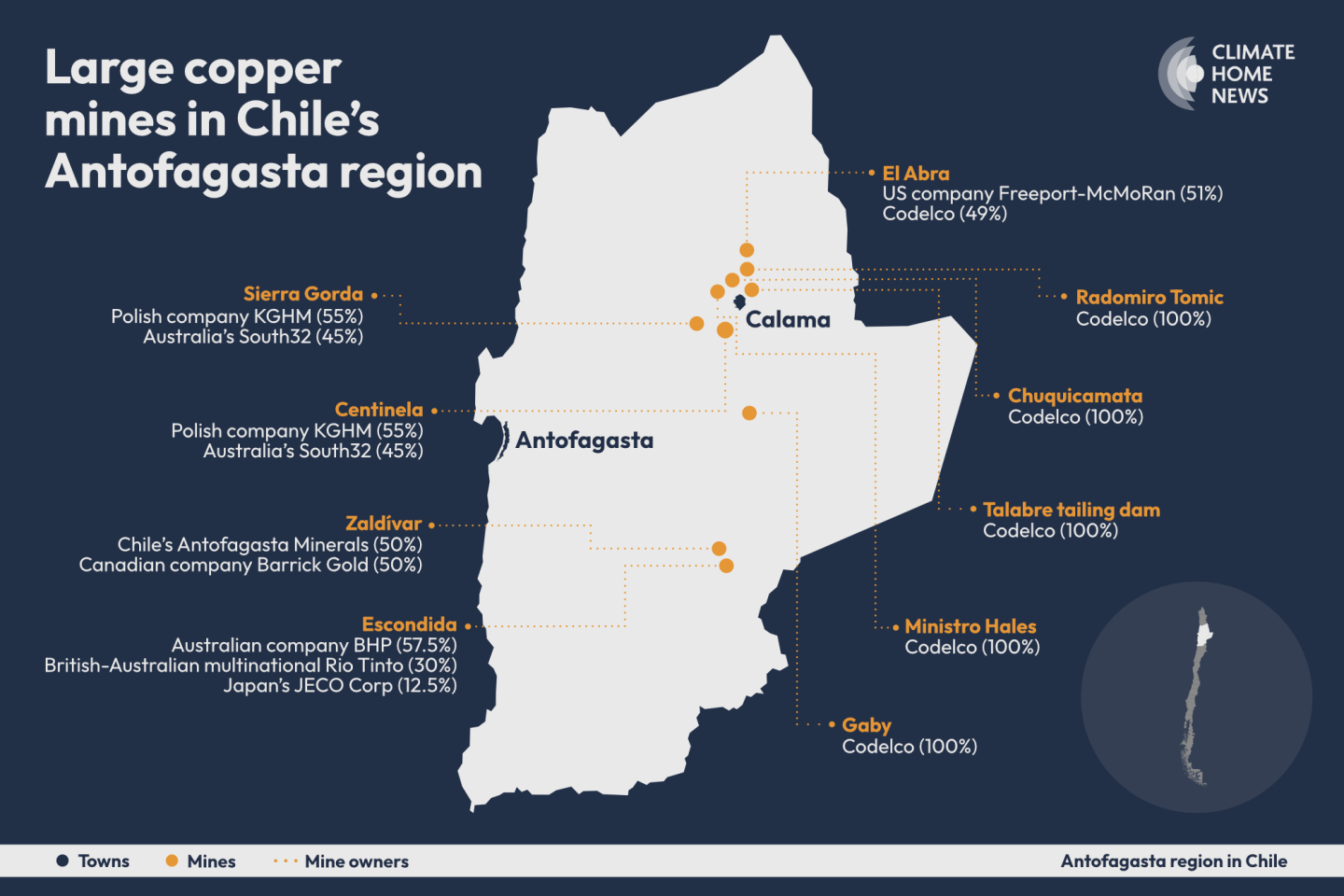A coalition of environmental campaigners and Indigenous groups is suing the Chilean government for systematically failing to curb pollution in the heart of the country’s copper mining region, as demand rises for the metal that is critical for the energy transition.
It marks the first time the Chilean government has been taken to court over alleged environmental damage caused by the country’s mining activities and its impact on local people.
The lawsuit comes after Climate Home News first reported that a group of local doctors blamed mining pollution for soaring numbers of children being born with severe autism and neurodivergent conditions in the area.
‘The state doesn’t want to know’: Doctors raise alarm on children’s health crisis in Chile’s copper heartland
In the case, campaigners are seeking compensation for the residents of Calama, a city close to some of Chile’s biggest copper mines in the north of the country. They say they have been exposed to “continuous and cumulative” air pollution caused by state-owned company Codelco’s mining operations since 2009.
The plaintiffs are asking the court to order Codelco, Chile’s top copper producer, to clean up its mining operations in a case that could set a landmark legal precedent. The government has rejected the accusations in a formal submission.
Chile is the world’s largest producer of copper, a metal that is crucial to global electrification and the clean energy transition. Driven by the world’s adoption of clean energy technologies, copper demand is set to significantly outstrip supply within a decade, the International Energy Agency has warned.
Bearing the costs of pollution
In the Chilean lawsuit, the plaintiffs accuse the government of negligence for failing to take action to address Calama’s air pollution – despite having a legal duty to do so.
They say local people have been “left to bear the cost of breathing and living in a contaminated environment” for the sake of economic development and accuse Codelco of polluting and drying out the basin of the Loa River, which makes Calama an oasis in the arid Atacama desert.
The case was filed at the country’s First Environmental Court in the northern city of Antofagasta earlier this year. Mediation between the two parties is due to begin this month.
Hungary’s bet on EV battery boom hits bumps in the road
Andrea Vásquez, who heads The Loa River and Mother Earth Defense Coordinating Committee, which is among the plaintiffs, told Climate Home the case follows years of campaigners demanding that authorities tackle the pollution.
Over time, residents have become “worse off”, she said, adding: “There is more illness, more pollution.”

Studies have found that people in Calama and the city of Antofagasta, the regional capital, are exposed to dangerous levels of air pollution, mainly due to dust from nearby copper mines and the transport of copper concentrate, which contains high levels of heavy metals.
The region has the highest cancer mortality rate in the country and diagnoses of lung cancer are nearly three times the national average.
Sergio Chamorro, the lawyer representing the campaigners, told Climate Home the legal case has taken years to prepare, and has been filed without a large budget or a team of lawyers.
“In December, when [Climate Home] revealed our silent suffering and our fight, we felt we had finally been heard and had entered the national conversation thanks to international media coverage. That was the final push to file the lawsuit,” Chamorro said.
Governments are avoiding renewable energy goals – and it matters
“The first thing we want is for the law to be applied, which means the polluter pays – in this case Codelco,” the lawyer added.
“Then, we want all new [mining] permits to be completely halted. Finally, we want the state to do what it has never done: conduct health studies on the population to determine the extent of the impacts and provide appropriate compensation to those proven to have been harmed by the contamination.”
‘Zero risks do not exist’
In a formal response to the court, the Chilean government refuted accusations of environmental damage and argued that the plaintiffs were demanding a “zero-risk scenario incompatible with the nature of mining in the area”.
It has unsuccessfully asked the court to throw out the case four times, citing procedural issues and arguing that the court cannot dictate public policy.
Chile’s State Defense Council, the body responsible for legally defending the interests of the state, and the health and environment ministries declined to comment. A Codelco spokeswoman said the company does not comment on ongoing legal proceedings.

Citing Climate Home’s reporting, two Chilean lawmakers previously called on the government to take urgent action to address the pollution. But the government never formally responded to their requests.
“I believe the state’s defence is a missed political opportunity to sit down with all parties and take responsibility,” Diego Bascuñán Loyola, an attorney for the Municipality of Calama, which is backing the lawsuit, told Climate Home. “It is a response that confirms the state’s policy of neglect, one that refuses to confront reality.”
Reforming an extractivist economic model
Bascuñán said that Chile’s extractive model needs to be fundamentally reformed to be compatible with public health and community well-being. “We cannot ignore the climate emergency. We have a noose around our neck [but] we are doing the same thing we have always done. Codelco, as a state-owned company, should be leading in environmentally responsible practices, but it is the worst offender.”
Codelco operates three massive open-pit copper mines around Calama, including Chuquicamata, the second deepest open-cast mine in the world. The company plans to expand its Ministro Hales mine just three kilometres from Calama’s city centre.

In 2009, the government declared Calama “saturated” with air pollution particles in breach of the country’s legal limit – a designation requiring Codelco to present a plan to address the pollution, which it did 13 years later.
But campaigners say that plan was never adequately implemented. In 2023, the environmental court in Antofagasta annulled the plan after it was found to be based on selective data that downplayed the severity of the problem.
In December 2024, Codelco told Climate Home that a new air pollution reduction plan was being developed with the environment ministry. But this has yet to materialise.

